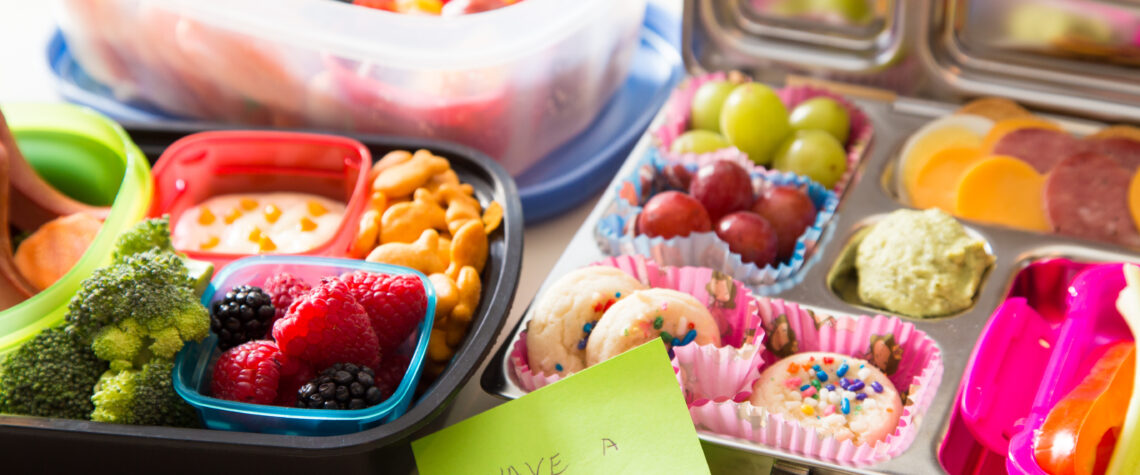A healthy back-to-school lunch is as important as a good night’s sleep. The CDC (Center for Disease Control and Prevention) discovered key findings about students making higher grades: They ate breakfast daily, ate 1-2 servings of fruits and vegetables per day, and drank milk or water instead of soda or pop. These eating habits help with immediate focus and alertness and contribute to your kids’ overall health and academic performance. Dietician Abby Cressman specializes in pediatric nutrition and has some advice on mastering those school lunches.
Creating a balanced school lunch is more straightforward than it may seem. Every school lunch should include a complex carbohydrate, protein, and fiber. Visualize a plate where half is covered in fruits and veggies, one quarter is a protein, and the other quarter a carbohydrate, and you have a balanced meal. Cressman says, “This combination helps with satiety and blood sugar balance to keep them alert to learn.”
Carbohydrates provide long-lasting energy throughout the day. Focus on complex carbohydrates, including fruits, vegetables, whole grains, beans, brown rice, nuts, and quinoa.
Proteins keep one full until the after-school snack. Consider meats, eggs, peanut or almond butter, beans, dairy (cheese, yogurt), or seafood. Packing a thermos or carton of milk will add dairy and protein to the meal.
Fiber in fruits and vegetables provides the needed vitamins and minerals a growing child needs. High-fiber foods include beans, nuts, fruits or dried fruits, vegetables, oats, whole-grain breads, and popcorn.
Variety in color and types of food will prevent boredom and offer essential vitamins and minerals without your child knowing it. Instead of using bread for every lunch, consider a bagel, wrap, or English muffin. Use a colorful variety of vegetables and fruits in season (much cheaper).
Preparing food on the weekends can save you headaches and stress. Boil eggs, cook pasta, and cut veggies on Sunday so the food is ready to toss on the weekdays. Get your shopping done ahead so you’re not left making a sandwich with both heels of the loaf on a Monday morning. I did that and still hear about it years later from my son.
What are some things not to pack? Processed foods (foods with a long storage life) have little nutritional value. Think natural colors, avoiding items with added food coloring. While an occasional sweet treat is fine, watch for hidden or added sugar in other foods.
Adding an inspirational note or a joke to your child’s lunch bag once a week is a nice touch. These notes feed your child’s spiritual and emotional being and let the child know you are thinking of them. That note may be just the word they need to hear to get them through a rough day.
Sally Cressman is the author of “The Dance of Easter.” She writes about faith, family, and home on her website, www.sallycressman.com. You can also connect with her on Instagram or Facebook.














